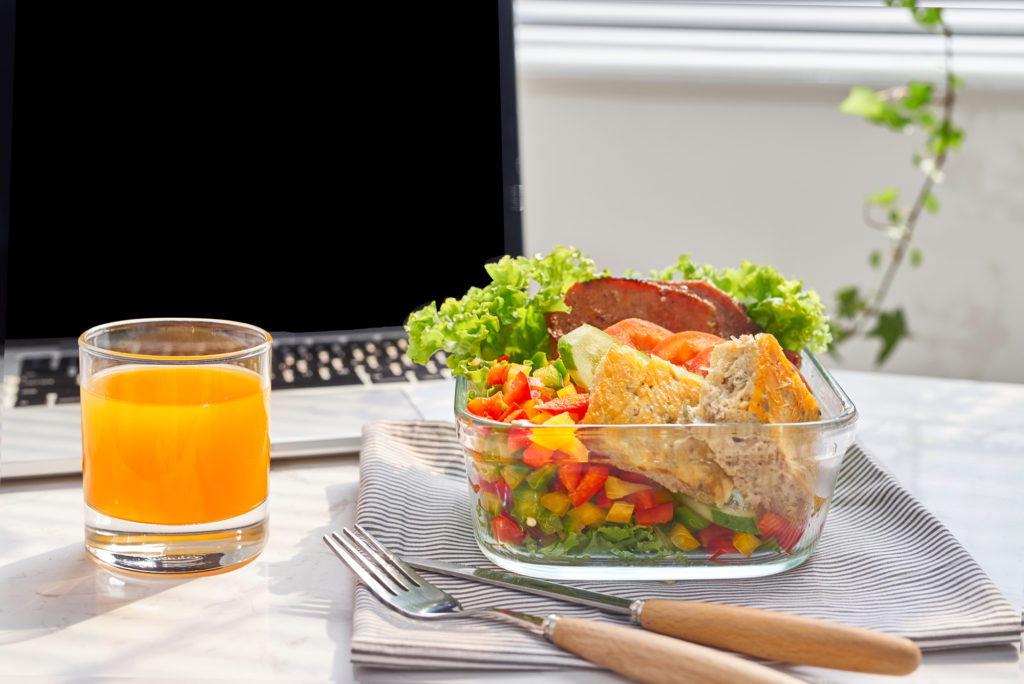 Nothing, unless you want to deduct it or otherwise get a tax benefit from it. There are only limited situations in which you can get a tax break for eating, or feeding others.
Nothing, unless you want to deduct it or otherwise get a tax benefit from it. There are only limited situations in which you can get a tax break for eating, or feeding others.
Pizza dinners for children-employees
One mom who put her three children to work paid them in pizza, along with tutoring and other things of their choosing.
They did documented work for her business: filing, stuffing envelopes, shredding, etc. But when she tried to write these payments as compensation, the IRS said no and the Tax Court agreed.
While compensation can be paid in-kind (rather than in cash or an equivalent), a parent can’t transform a parental duty to feed one’s children — a nondeductible personal expense — by claiming it to be wages (the so-called wages here did not match up with the work performed).
Coffee, donuts, and more
Many companies stock a lunchroom or common area with coffee, donuts, soft drinks, and other snacks. It’s well established that businesses can deduct the cost for these items and employees aren’t taxed on them; they’re viewed a de minimis fringe benefits. Similarly occasional meals or meal money given to enable an employee to work overtime is tax free.
And some meals are furnished on the company’s premises. As long as this is done for the convenience of the employer (e.g., an employee is on call during meal time), the company can deduct the cost while employees aren’t taxed on them.
Meals furnished to employees in the food service business during, immediately before or after their work hours is treated as furnished for the employer’s convenience (e.g., a waiter who works the breakfast and lunch shift isn’t taxed on breakfast and lunch he eats in the restaurant each day — before, during, or after the shift). Find more details here.
But some companies, including a number of well-known high tech companies (e.g., Google) let employees eat what they want from morning to night at no cost to workers. The IRS is taking a careful look at this arrangement and whether it should continue to afford employees to receive this tax-free perk; it has placed “employer-provided meals” on its 2014-2015 priority guidance plan.
Business meals
A breakfast with a client, lunch with a vendor, and dinner with a prospective client may be tax deductible. But there are some ifs, ands, and buts:
- The meal must be a legitimate business expense. This means talking business, even if you also discuss Thursday night football. You can’t take your co-owner out to lunch on Monday and have her reciprocate on Tuesday; this arrangement won’t fly.
- The meals can’t be lavish or extravagant. This depends on the facts and circumstances of the situation.
- Assuming you satisfy these thresholds, then only 50% of the cost is deductible. Half the cost of business meals usually can’t be deducted (there are some exceptions, such as the cost of the company picnic and holiday party).
You can’t deduct your meal costs if you dine alone in town (the city or area in which your business is located). So, for example, if you usually brown bag it but are forced to eat lunch in a diner because you’re across town to make a sales call, the meal is still treated as a nondeductible personal expense.
However, if you’re out of town on business, your meal costs (subject to the 50% limit) are deductible whether you dine alone or with business associates or others connected to your business.
Special diets
Gluten free? Low carb? The cost of special diets can add up. However, a medical expense deduction can be claimed for the added cost (i.e., amounts over and above what would be paid for a normal diet) can be claimed on an individual’s return if:
- The food does not satisfy normal nutritional needs,
- The food alleviates or treats an illness, and
- The need for the food is substantiated by a physician.
Bottom line
We all have to eat, but Uncle Sam will pick up the tab only in limited circumstances. In all cases in which a deduction may be allowed, be sure to keep good records of cost and other required information.


